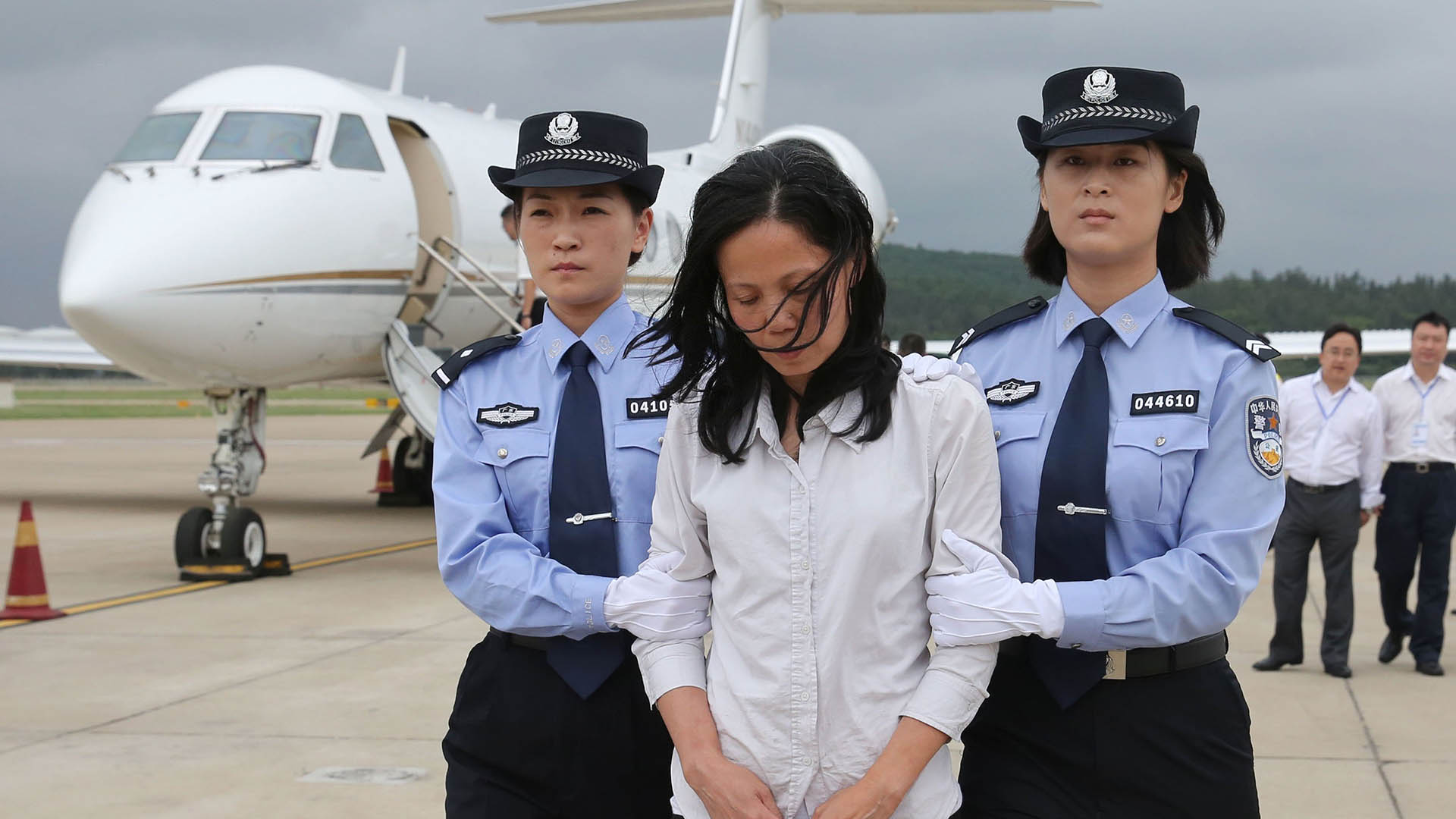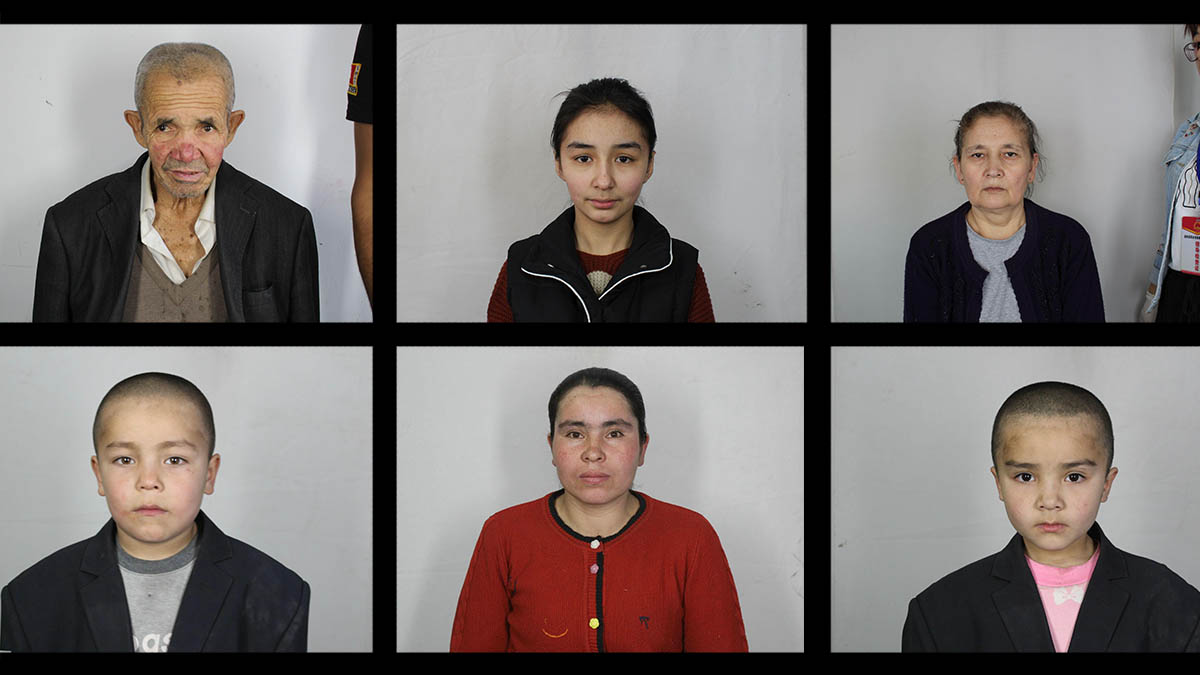The United States Senate has unanimously passed a bill calling for sanctions against Chinese officials responsible for human rights abuses against Uighurs and other ethnic minorities targeted by sweeping state repression in China’s northwestern Xinjiang Province.
If enacted, the Uighur Human Rights Policy Act of 2020 would give the Trump Administration 180 days to report to Congress identifying Chinese officials responsible for mass internment camps and other abuses in Xinjiang. Those officials would be subject to sanctions imposed at the discretion of the White House. The legislation also calls on the State Department to prepare a report estimating the number of people forcibly interned in the camps.
“The Chinese Government and Communist Party’s systematic, ongoing efforts to wipe out the ethnic and cultural identities of Uighurs and other Muslim minorities in Xinjiang is horrific and will be a stain on humanity should we refuse to act,” Sen. Marco Rubio (R-FL), who introduced the bill, said in a statement after its approval.
Last November, the International Consortium of Investigative Journalists published its China Cables investigation, which revealed the secret operations manual for China’s internment camps in Xinjiang.
The investigation showed that the camps hold detainees in prison-like conditions and force them to undergo ideological indoctrination, contrary to the Chinese government’s insistence that they are humane vocational training centers. It also uncovered the mechanics of China’s massive surveillance and data collection system in Xinjiang, which uses artificial intelligence to select entire categories of the population for detention.
Just over a week after the project’s publication, the U.S. House of Representatives passed similar legislation calling for sanctions against top Chinese officials in Xinjiang. The House bill also called on the Administration to consider restricting exports of U.S.- made goods and services that could be used by Chinese government agencies to surveil or crack down on communications by ethnic minorities.
The Senate stripped the language on exports from the bill it passed yesterday. That means that the House must vote again on the bill approved by the Senate in order for it to advance to President Trump for his signature.
The Senate vote comes at a time of mounting tensions between the U.S. and China in connection to the COVID-19 pandemic, which the Trump Administration has blamed on China.
The Chinese government is likely to respond angrily if the bill is signed into law.
When the House passed its version of the legislation in November, Chinese Foreign Ministry spokeswoman Hua Chunying said the bill “wantonly smeared China’s counter-terrorism and de-radicalization efforts.”
She warned that “it’s impossible that it will not affect China-U.S. relations or cooperation in important areas” if the U.S. took further action.
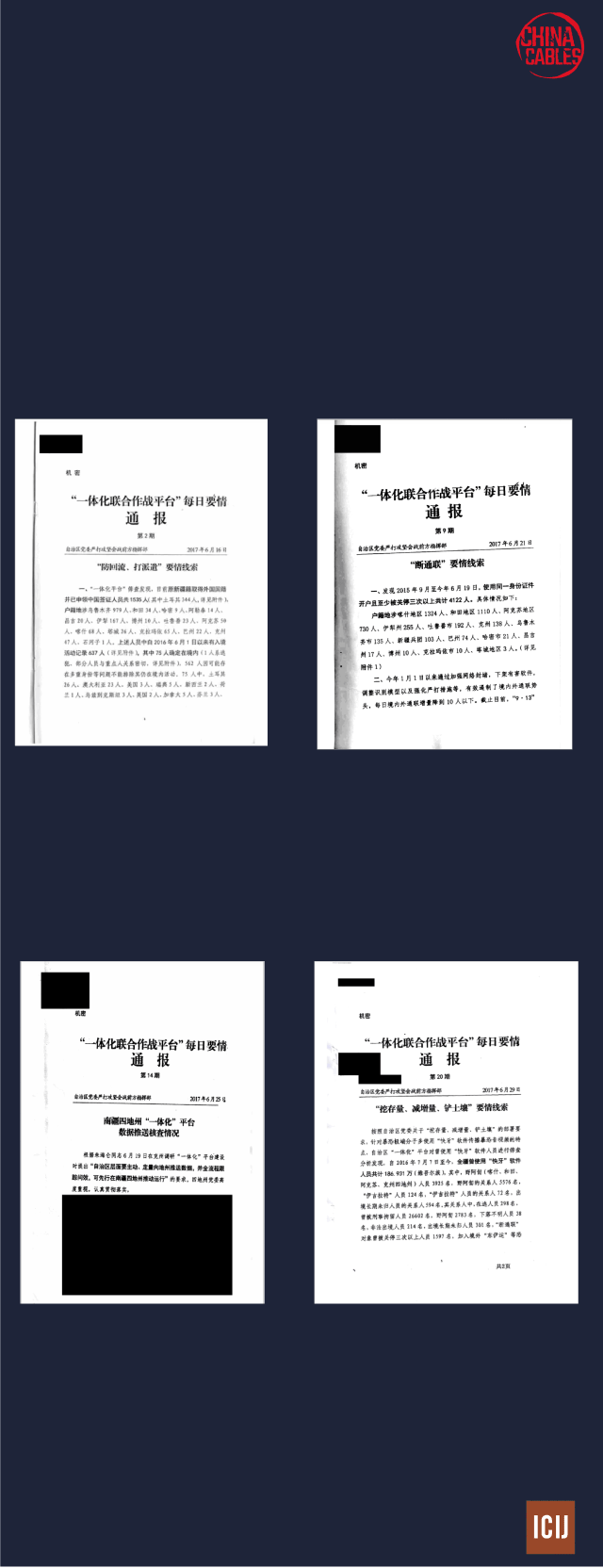
Four “bulletins”
These four “bulletins,” written in Chinese, are secret government intelligence briefings from the Integrated Joint Operation Platform, a centralized data collection system. The bulletins – for the first time – lay out the connection between mass surveillance and the Xinjiang camps.
Bulletin #2
Bulletin #9
Bulletin #14
Bulletin #20
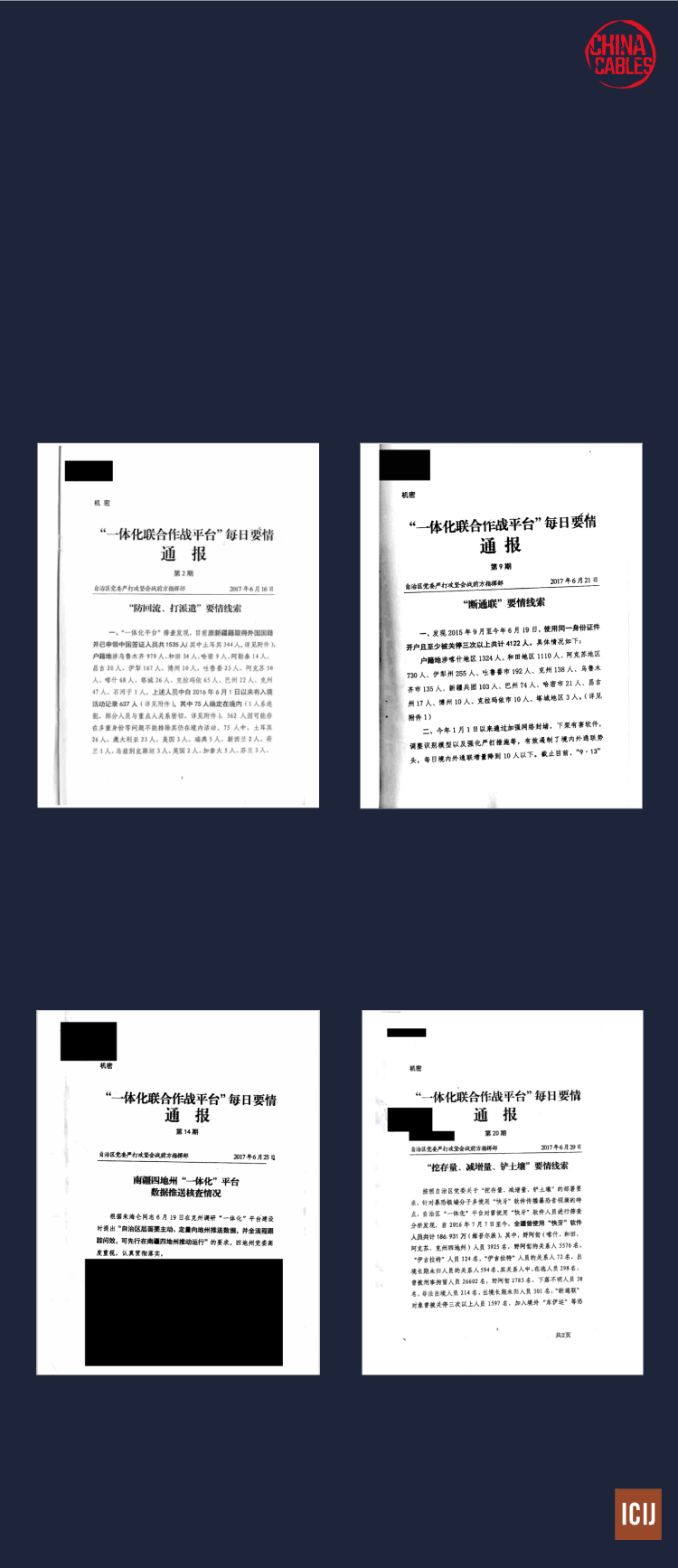
Four “bulletins”
These four “bulletins,” written in Chinese, are secret government intelligence briefings from the Integrated Joint Operation Platform, a centralized data collection system. The bulletins – for the first time – lay out the connection between mass surveillance and the Xinjiang camps.
Bulletin #2
Bulletin #9
Bulletin #14
Bulletin #20
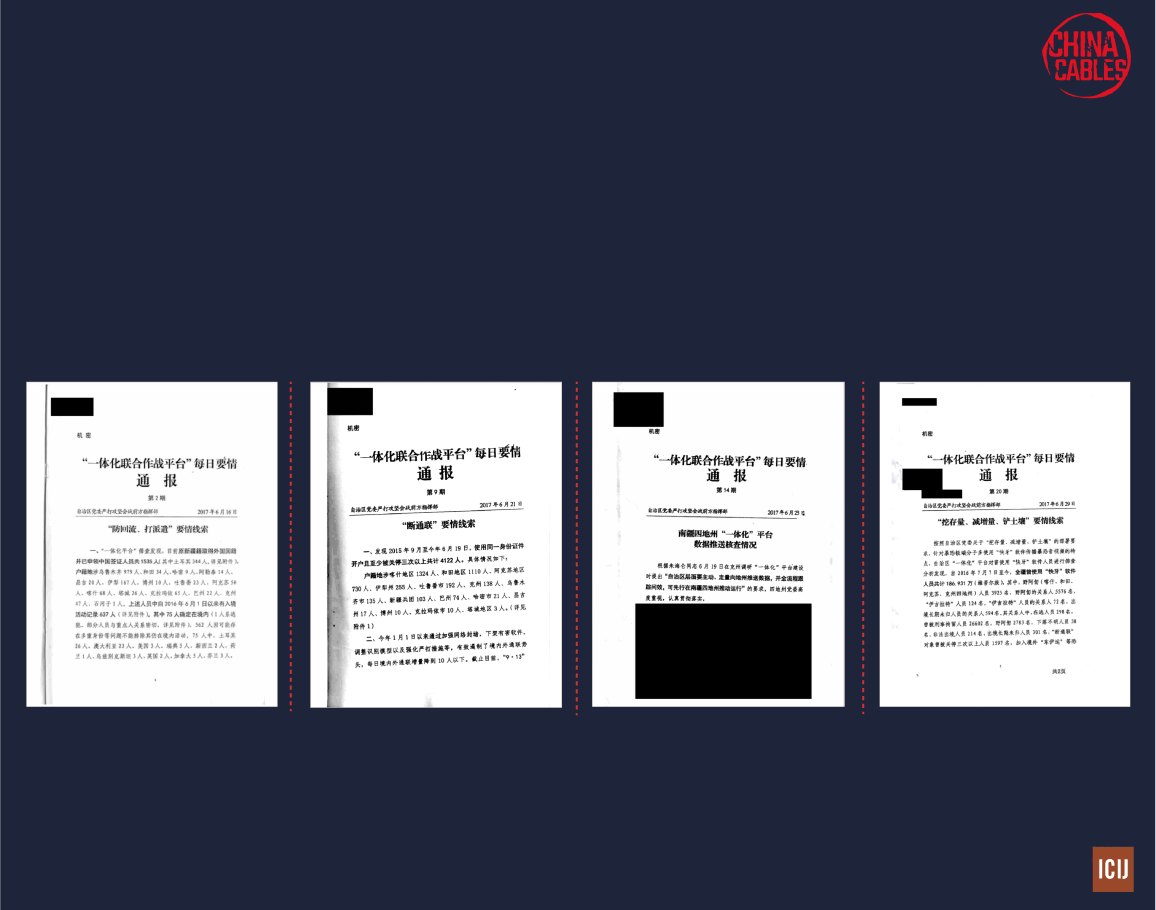
Four “bulletins”
These four “bulletins,” written in Chinese, are secret government intelligence briefings from the Integrated Joint Operation Platform, a centralized data collection system. The bulletins – for the first time – lay out the connection between mass surveillance and the Xinjiang camps.
Bulletin #2
Bulletin #9
Bulletin #14
Bulletin #20
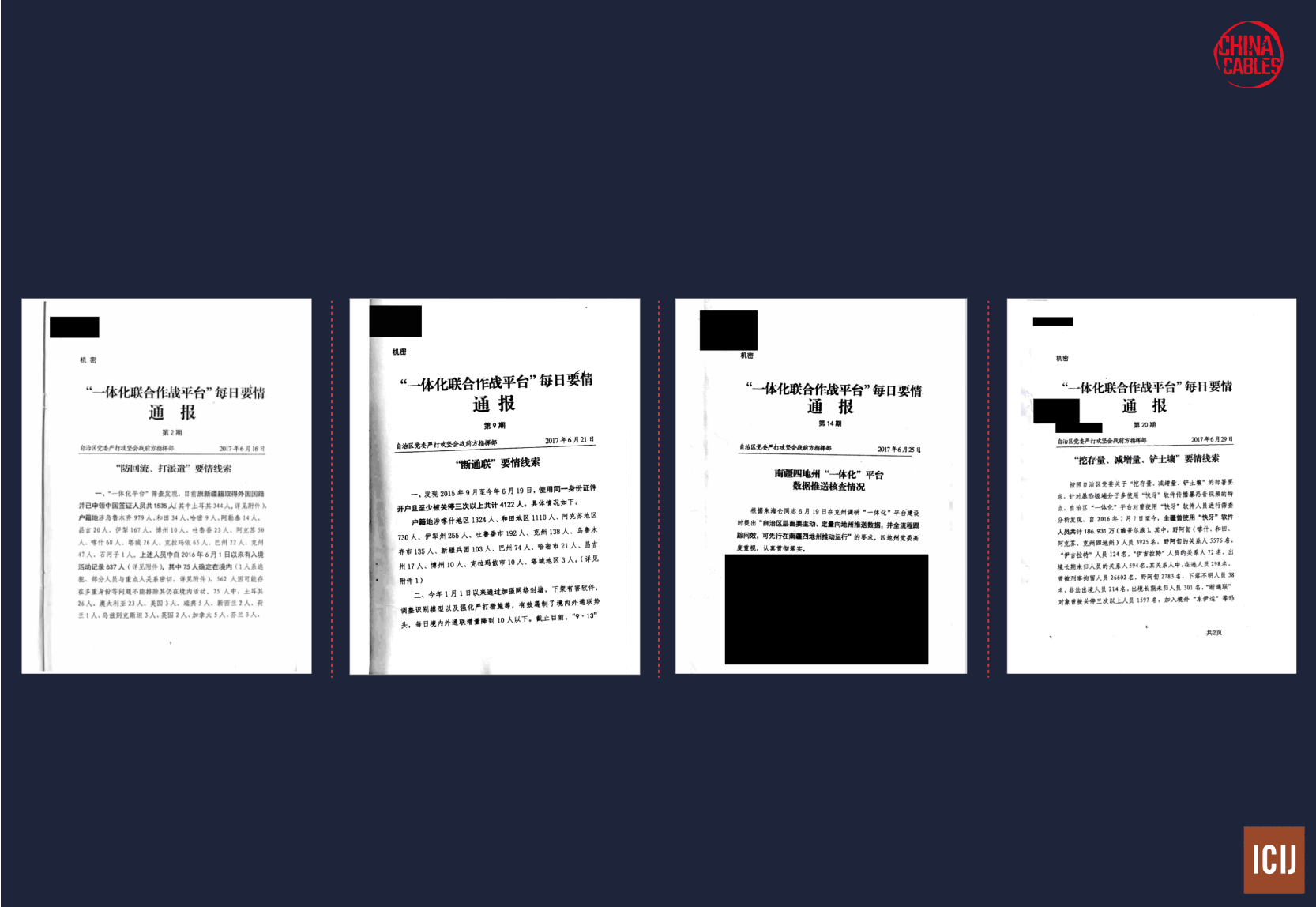
Four “bulletins”
These four “bulletins,” written in Chinese, are secret government intelligence briefings from the Integrated Joint Operation Platform, a centralized data collection system. The bulletins – for the first time – lay out the connection between mass surveillance and the Xinjiang camps.
Bulletin #2
Bulletin #9
Bulletin #14
Bulletin #20





